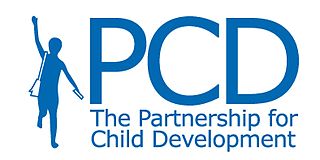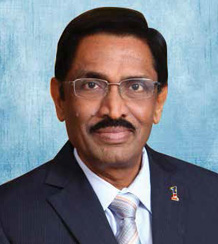
The Carter Center is a nongovernmental, not-for-profit organization founded in 1982 by former U.S. President Jimmy Carter. He and his wife Rosalynn Carter partnered with Emory University just after his defeat in the 1980 United States presidential election. The center is located in a shared building adjacent to the Jimmy Carter Library and Museum on 37 acres (150,000 m2) of parkland, on the site of the razed neighborhood of Copenhill, two miles (3 km) from downtown Atlanta, Georgia. The library and museum are owned and operated by the United States National Archives and Records Administration, while the center is governed by a Board of Trustees, consisting of business leaders, educators, former government officials, and philanthropists.
Allied health professions are health care professions distinct from optometry, dentistry, nursing, medicine, clinical psychology, and pharmacy. They provide a range of diagnostic, technical, therapeutic, and support services in connection with health care.

Neglected tropical diseases (NTDs) are a diverse group of tropical infections that are common in low-income populations in developing regions of Africa, Asia, and the Americas. They are caused by a variety of pathogens, such as viruses, bacteria, protozoa and parasitic worms (helminths). These diseases are contrasted with the "big three" infectious diseases, which generally receive greater treatment and research funding. In sub-Saharan Africa, the effect of neglected tropical diseases as a group is comparable to that of malaria and tuberculosis. NTD co-infection can also make HIV/AIDS and tuberculosis more deadly.

The Partnership for Child Development (PCD) is a research and technical assistance group based at Imperial College London that seeks to improve health and nutrition in school-age children and youth in low-income countries, thereby improving their education outcomes. PCD was formed in 1992 at the University of Oxford to bridge gaps between academia, funding bodies and the education and health sectors in low-income countries.
The Global Network for Neglected Tropical Diseases is an advocacy initiative of the Sabin Vaccine Institute dedicated to raising the awareness, political will, and funding necessary to control and eliminate the most common Neglected Tropical Diseases (NTDs)—a group of disabling, disfiguring, and deadly diseases affecting more than 1.4 billion people worldwide living on less than $1.25 a day.

Tan Sri Dr. S. Subramaniam s/o. K. V. Sathasivam is a Malaysian politician who served as Minister of Health from May 2013 to May 2018, Minister of Human Resources from March 2008 to May 2013, Parliamentary Secretary in the Ministry of Human Resources from 2004 to 2008 and Member of Parliament (MP) for Segamat from March 2004 to May 2018. He is a member and served as 9th President of the Malaysian Indian Congress (MIC), a component party of the ruling Barisan Nasional (BN) coalition, in acting capacity from June 2014 to June 2015 and in official capacity from June 2015 to July 2018. He was one of the only two ministers of Indian ethnicity and one of only three MIC candidates who managed to retain their federal seats in the 2008 general elections.

Health in Ethiopia has improved markedly since the early 2000s, with government leadership playing a key role in mobilizing resources and ensuring that they are used effectively. A central feature of the sector is the priority given to the Health Extension Programme, which delivers cost-effective basic services that enhance equity and provide care to millions of women, men and children. The development and delivery of the Health Extension Program, and its lasting success, is an example of how a low-income country can still improve access to health services with creativity and dedication.
As literacy and socioeconomic status improves in Ethiopia, the demand for quality service is also increasing. Besides, changes in the demographic trends, epidemiology and mushrooming urbanization require more comprehensive services covering a wide range and quality of curative, promotive and preventive services.
The St. Paul’s Hospital Millennium Medical College in Addis Ababa is the first largest hospital in Ethiopia.
Healthcare in Malawi and its limited resources are inadequate to fully address factors plaguing the population, including infant mortality and the very high burden of diseases, especially HIV/AIDS, malaria and tuberculosis.
The Task Force for Global Health is an international, nonprofit organization that works to improve health of people most in need, primarily in developing countries. Founded in 1984 by global health pioneer Dr. William Foege, The Task Force consists of eight programs focused on neglected tropical diseases, vaccines, field epidemiology, public health informatics, and health workforce development. Those programs include the African Health Workforce Project, the Center for Vaccine Equity, Children Without Worms, International Trachoma Initiative, Mectizan Donation Program, Neglected Tropical Diseases Support Center, Public Health Informatics Institute, and TEPHINET. The Task Force works in partnership with ministries of health and hundreds of organizations, including major pharmaceutical companies that donate billions of dollars annually in essential medicines. Major funders include the Bill & Melinda Gates Foundation, CDC, WHO, Robert Wood Johnson Foundation, de Beaumont Foundation, United States Agency for International Development, Sightsavers, Pfizer, Merck & Co., Johnson & Johnson, and GlaxoSmithKline. The Task Force is affiliated with Emory University, headquartered in Decatur, Georgia, a town in metro Atlanta, and has regional offices in Guatemala and Ethiopia. The Task Force currently supports work in 154 countries.

The Organisation for the Prevention of Blindness is an international non-governmental organisation whose actions today focus exclusively on French-speaking countries in Africa. Their mission is to preserve and restore sight amongst some of the most under-privileged communities in the region. The OPC's principal actions concern blindness prevention, treatment and the elimination of blinding diseases, such as onchocerciasis, trachoma, glaucoma and cataracts as well as formal ophthalmological training.
The London Declaration on Neglected Tropical Diseases was a collaborative disease eradication programme launched on 30 January 2012 in London. It was inspired by the World Health Organization roadmap to eradicate or prevent transmission for neglected tropical diseases by the year 2020. Officials from WHO, the World Bank, the Bill & Melinda Gates Foundation, the world's 13 leading pharmaceutical companies, and government representatives from US, UK, United Arab Emirates, Bangladesh, Brazil, Mozambique and Tanzania participated in a joint meeting at the Royal College of Physicians to launch this project. The meeting was spearheaded by Margaret Chan, Director-General of WHO, and Bill Gates, Co-Chair of the Bill & Melinda Gates Foundation.

Tedros Adhanom Ghebreyesus is an Ethiopian public health official, researcher, and Director-General of the World Health Organization since 2017. Tedros is the first African to become WHO Director-General, receiving an endorsement for the role by the African Union. He played a role in the response to the Ebola virus epidemic, the ongoing COVID-19 pandemic, and the ongoing 2022 monkeypox outbreak.

Healthcare in Belize is provided through both public and private healthcare systems. The Ministry of Health (MoH) is the government agency responsible for overseeing the entire health sector and is also the largest provider of public health services in Belize. The MoH offers affordable care to a majority of Belizeans with a strong focus on providing quality healthcare through a range of public programs and institutions.
Sustainable Development Goals is a post Millennium Development Goal agenda by experts in the world which will be implemented within the next 15 years until 2030. It has seventeen goals and 169 targets as a whole where SDG 3 deal with ensuring health lives and promote well-being for all at all ages. Sustainable Development Goal 3 has nine targets and four sub targets related with different areas of health. One of the targets target 3.1 is a target to achieve a reduction of global maternal mortality ratio to less than 70 per 100,000 live births .Maternal death is defined as "The death of a woman while pregnant or within 42 days of termination of pregnancy, irrespective of the duration and the site of the pregnancy, from any cause related to or aggravated by the pregnancy or its management, but not from accidental or incidental causes.
Elizabeth Howe Bradley is the eleventh President of Vassar College, a role she assumed on July 1, 2017. Bradley also holds a joint appointment as Professor of Political Science and Professor of Science, Technology, and Society.
Takele Uma Banti is an Ethiopian politician and the current Minister for Mines Petroleum of Ethiopia since 18 August 2020. He was the 31st Mayor of Addis Ababa who came to prominence for his transformational way of doing business and his visionary leadership roles after Ethiopia's reform by the current leadership of the country starting 2018.

Senait Fisseha is an Ethiopian endocrinologist at University of Michigan working with reproductive endocrinology and infertility and director of international programs at the Susan Buffet Foundation. Fisseha has a J.D. degree and is known for her work as an advocate for global reproductive health, rights and gender equality. She is the founder of the Center for International Reproductive Health Training (CIRHT) at the University of Michigan. She chaired the election campaign of Tedros Adhanom, the first African Director General of the World Health Organization, in 2016-17.
Lia Tadesse Gebremedhin is an Ethiopian politician and physician serving as the current Minister of Health since March 2020. Prior to her appointment, Lia served as State Minister of Health from November 2018. She also served as an Executive Director at the University of Michigan's Center for International Reproductive Health Training (CIRHT) in Ann Arbor, Michigan, as a CEO and Vice Provost in St. Paul's Hospital Millennium Medical College (SPHMMC) in Addis Ababa and as a Project Director of USAID's Maternal and Child Survival Program (MCSP) at Jhpiego-Ethiopia.









